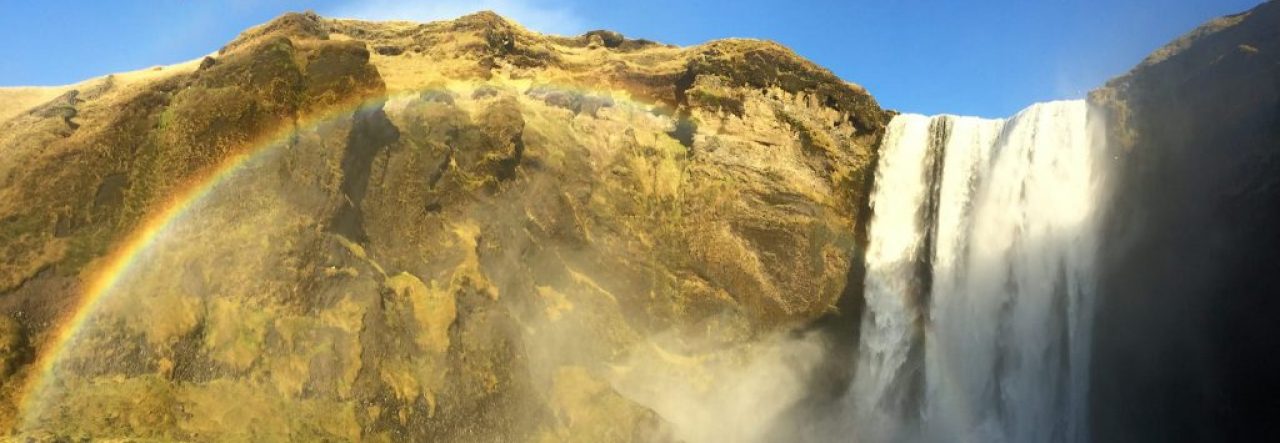
“One’s destination is never a place but rather a new way of looking at things.”
That insight, from the American writer Henry Miller, is of course just another way of saying the usual thing that people say about travel – that it broadens the mind.
Over the last few years, I’ve sat down in bars with locals in Berlin, Athens, Reykjavík and many other places all across Europe and the same thing has invariably happened.
Given the opportunity of hearing their perspectives on whatever moves them most has made me properly understand that everyone sees the world in a slightly different way.
We’re all taught a version of history and geography and culture and politics that makes sense to us, often reinforcing a “founding myth” that helps to bind us all together with a common sense of identity and national pride.
It’s all the more surprising then to hear someone from another country tell you that vodka is actually Polish in origin and that Polish mathematicians were actually the first to begin to break the Enigma code.
Benedict Cumberbatch might be a bit put out by that, perhaps.

That’s the chap – a certain Marian Rejewski.
Who would play him in the now required remake of “The Imitation Game”?
His life story certainly deserves a film, including a daring and dangerous escape to Britain across Europe to join the exiled Polish resistance.
In 1932, he and his team had reconstructed an Enigma machine, sight unseen, groundbreaking work that enabled Alan Turing and his team to eventually crack the codes much later on.
I learned this and many other things on an excellent “Philosophy of Vodka” Warsaw drinking tour with Bartosz, a brilliant local guide, consuming and understanding more about vodka than I thought possible in one night.
It’s highly likely that I’d have remembered more of what Bartosz was telling me about vodka, Poland and Warsaw in particular, but my mental capacity declined drastically as I drank each new vodka variation, to the extent that I’m retrospectively surprised that I even remembered where my Airbnb was by the end of the night.
Bartosz’s pride in his country’s contributions to military history and alcohol production are unsurprising when you consider Poland’s awful recent history – constantly overrun from all directions, dismembered, destroyed, always the pawn in some larger struggle.
Take the Royal Castle, for example.
This gorgeous building looks like its several hundred years old, but it’s actually a brick-by-brick copy of the original edifice that was entirely destroyed during the terrible years of Nazi occupation.



 The effort required to rebuild this shattered city after the horrors of Nazi occupation is almost unfathomable to consider now – it’s estimated that 85% of the city’s buildings were destroyed during the war.
The effort required to rebuild this shattered city after the horrors of Nazi occupation is almost unfathomable to consider now – it’s estimated that 85% of the city’s buildings were destroyed during the war.
The two month long Warsaw Uprising that began 75 years ago in August 1944 with an appalling human cost should have seen Poland begin at last to free herself, but instead her destiny was to be dominated by another country for four more decades, until the end of Soviet control in the 1980’s.
To this day, the Palace of Culture and Science, a “gift” to the city by the Russians, is the tallest and also the most unpopular building in Warsaw – a reminder of a softer, but just as unwanted occupation.
 All of these things were borne with stoicism, dignity and bravery, qualities that are clearly part of the Polish psyche.
All of these things were borne with stoicism, dignity and bravery, qualities that are clearly part of the Polish psyche.
I’m more than happy to now know that Enigma wasn’t just broken by us Brits.
However, I’m less likely to get involved in an argument between Poland and Russia over the origins of vodka.
You’re on your own there, lads.


Trains taken: 0 (5)
Distance traveled – 1050 miles
Unexpected Facts About Vodka and Enigma: 2
Local food consumed: Pierogi – gorgeous Polish dumplings, apple pie and a beer for £11.50

